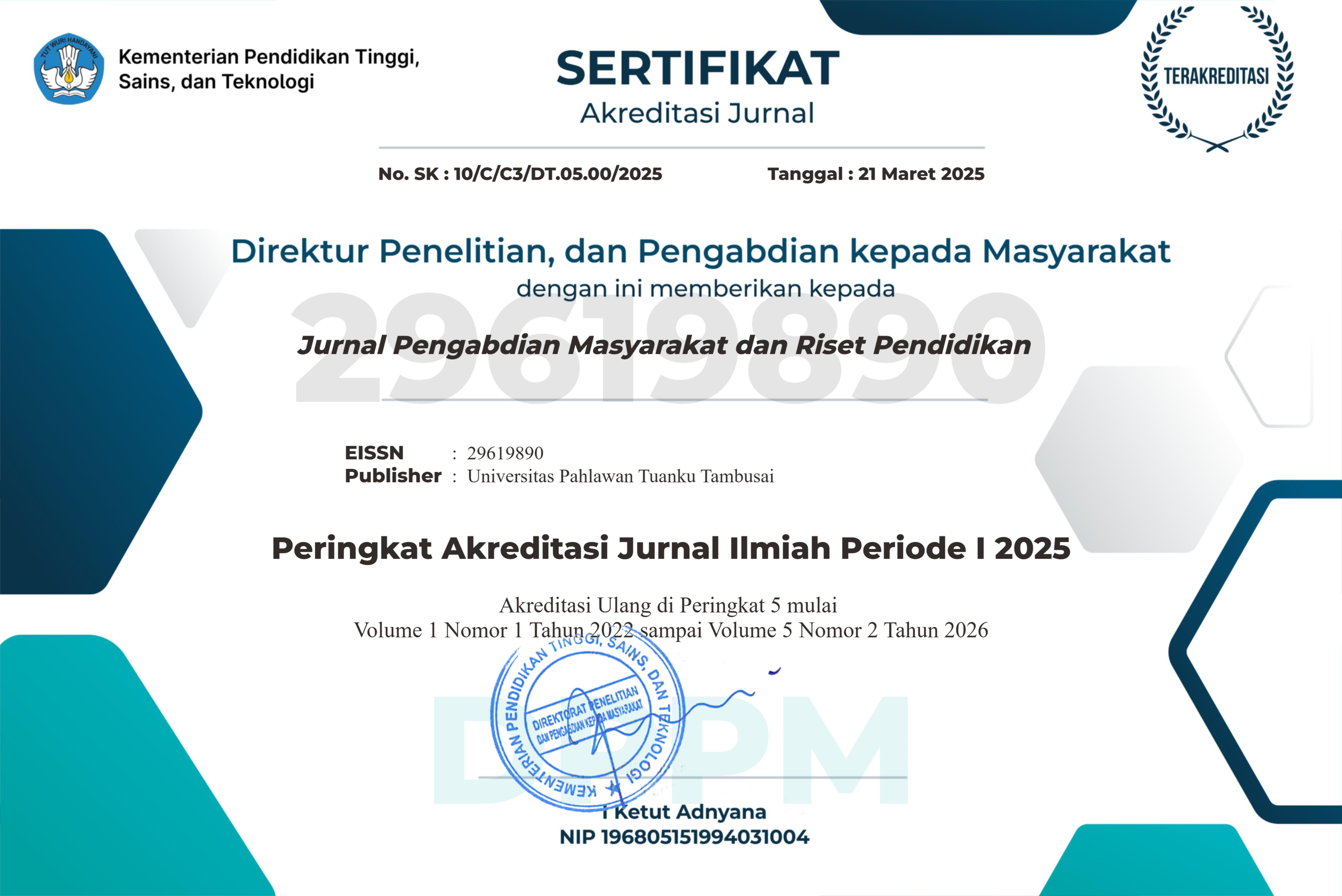Good Corporate Governance: Sebagai Mitigasi Risiko Pelanggaran Etika Terhadap Kinerja Keuangan Perusahaan
Penelitian
DOI:
https://doi.org/10.31004/jerkin.v4i2.3161Keywords:
Good Corporate Governance, Risk Mitigation, Company Financial PerformanceAbstract
Good Corporate Governance (GCG) has become a crucial element in preventing ethical violations, particularly in corporate financial reporting. This study aims to analyze the role of GCG as a risk mitigation mechanism for ethical violations and its impact on corporate financial performance. This study uses the Systematic Literature Review (SLR) method by identifying literature relevant to the topic of GCG, which has been published in reputable journals. The results show that effective GCG implementation can increase transparency and accountability, minimize the risk of data manipulation, and improve corporate financial performance in the long term. However, several challenges, such as weak internal controls, an unsupportive organizational culture, and low awareness of the importance of GCG, remain major obstacles in Indonesia. This study also found that integrating GCG with modern technology, such as Enterprise Resource Planning (ERP) systems, can strengthen corporate governance. In conclusion, GCG functions not only as a risk control but also as a strategic tool for creating sustainable governance and supporting business sustainability.
References
Aguilera, R. V., Filatotchev, I., Gospel, H., & Jackson, G. (2008). An Organizational Approach to Comparative Corporate Governance: Costs, Contingencies, and Complementarities. Organization Science, 19(3), 475–492. https://doi.org/10.1287/orsc.1070.0322
Angelliza Chantica, J., Cahyani, R., C Romadhon, A. (2022). Peranan Manajemen Pengawasan: Komitmen, Perencanaan, Kemampuan Karyawan (Literature Review Msdm). Jurnal Ilmu Manajemen Terapan, 3(3), 247–256. https://doi.org/10.31933/jimt.v3i3.829
Ariviani, R., Asy’ari, H., C Hardjanto, U. S. (2016). Analisis Putusan Mahkamah Konstitusi Nomor 14/PUU- XI/2013 Berkaitan dengan Pemilihan Umum Serentak di Indonesia. Diponegoro Law Journal, 5(4), 1– 11.
Claessens, S., & Yurtoglu, B. B. (2013). Corporate Governance in Emerging Markets. Annual Review of Financial Economics, 5, 1–30. https://doi.org/10.1146/annurev-financial-110112-120936
Datriadi, T. N. A. (2023). Media Massa dan Proses Konstruksi Realitas dalam Kajian Teori Sistem dan Differensiasi. Mukasi: Jurnal Ilmu Komunikasi, 2(2), 132–142. https://doi.org/10.54259/mukasi.v2i2.1576
Dechow, P. M., Ge, W., & Schrand, C. (2011). Understanding Earnings Quality: A Review of the Proxies, Their Determinants and Their Consequences. Journal of Accounting and Economics, 50(2–3), 344–401. https://doi.org/10.1016/j.jacceco.2010.09.001
Isnaeni, N. (2013). Peran Strategis Pemerintah Daerah dalam Kerja Sama Internasional untuk Pembangunan Berkelanjutan. Global & Strategis, 7(1), 123–138. www.nasional.kompas.com
Khan, A., Muttakin, M. B., & Siddiqui, J. (2019). Corporate Governance and Corporate Social Responsibility Disclosures: Evidence from an Emerging Economy. Journal of Business Ethics, 114(2), 207–223. https://doi.org/10.1007/s10551-012-1336-0
Kitchenham, B., & Charters, S. (2007). Guidelines for Performing Systematic Literature Reviews in Software Engineering. Technical Report EBSE 2007-001, Keele University and Durham University Joint Report.
Leung, P., Cooper, B. J., & Perera, L. (2017). Accountability and Transparency in Corporate Governance: The Role of Audit Committees. Managerial Auditing Journal, 32(5), 426–444. https://doi.org/10.1108/MAJ-12-2015-1285
Lestari, R. A. (2019). Reformasi Birokrasi Sebagai Pelayan Publik. Dinamika Governance : Jurnal Ilmu Administrasi Negara, S(1). https://doi.org/10.33005/jdg.v9i1.1421
Maharani, Y., C Sari, R. (2021). Konsep Value For Money untuk Pengukuran Kinerja pada Kantor Imigrasi Pangkalpinang. Jurnal IAKP: Jurnal Inovasi Akuntansi Keuangan & Perpajakan, 2(1), 97. https://doi.org/10.35314/iakp.v2i1.1919
Marwansyah. (2019). Pengaruh Kompensasi, Lingkungan Kerja, Beban Kerja terhadap Kinerja Karyawan terhadap CV.Berdikari Madigono Magetan. Angewandte Chemie International Edition, c(11), S51– S52., 201c, 2013–2015.
Schein, E. H. (2010). Organizational Culture and Leadership (4th ed.). San Francisco, CA: Jossey-Bass.
Shleifer, A., & Vishny, R. W. (1997). A Survey of Corporate Governance. The Journal of Finance, 52(2), 737–783. https://doi.org/10.1111/j.1540-6261.1997.tb04820.x
Sitompul, D. P., Sitorus, Y., Sibuea, E. G. B., C Elsi, S. D. (2024). Peran Media Sosial Dalam Mempengaruhi Perilaku Pemilih Pemula. Journal of Law, Administration, and Social Science, 4(5), 767–775. https://doi.org/10.54957/jolas.v4i5.888
Suryadinata, E. (2016). Proses komunikasi interpersonal antara orang tua tunggal (ibu) dengan anak dalam mempertahankan intimacy. Jurnal E-Komunikasi.
Widiyastomo, R. P. (2020). Percepatan Implementasi Reformasi Birokrasi Di Pemerintah Kabupaten/Kota Periode Tahun 2020 - 2024. Mimbar Administrasi Fisip Untag Semarang, 17(2), 84.
Downloads
Published
How to Cite
Issue
Section
License
Copyright (c) 2025 Imas Nurani Islami, Irsyad Lukmanul Hakim, Muhamad Syafiq Hilmy, Ahmad Ghossan Abdillah

This work is licensed under a Creative Commons Attribution-ShareAlike 4.0 International License.















